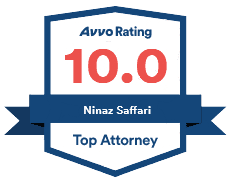Have you been ARRESTED or contacted by the Police, a Detective, FBI, or CPS?
Federal Drug Offenses Criminal Defense Attorney in Los Angeles, California
Federal Drug Offenses in Los Angeles
Federal drug offenses are crimes committed in violation of federal law – specifically, in contravention of U.S. criminal statutes codified in the United States Code: https://uscode.house.gov.
California state law drug crimes (codified in the California Penal Code: https://leginfo.legislature.ca.gov/faces/codesTOCSelected.xhtml?tocCode=PEN) are obviously offenses that occur within the state.
Federal jurisdiction, however, is triggered by crimes that cross state or national borders; that are facilitated by the U.S. mail or bank wire transfers; that occur on federal property; etc.
See https://www.justice.gov/usao-nh/frequently-used-federal-drug-statutes (“Frequently Used Federal Drug Statutes”).
There is a significant difference in how the state and federal courts handle drug crimes. The criminal penalties you face for federal drug charges are generally harsher and depend on the quantity and nature of the drug involved. A conviction for a federal drug crime will typically result in a lengthier prison sentence than the same state drug offense.
The consequences of violating federal drug laws go beyond the prison sentence. You will also face collateral consequences such losing your professional license, asset seizure, and a firearm ban.
Overview of Federal Drug Offenses
The United States Controlled Substance Act (21 U.S.C. § 801, et. seq.: https://www.law.cornell.edu/uscode/text/21/801) and other federal statutes impose harsh penalties on many crimes, but particularly in regard to drug offenses.
Regardless of whether federal or California criminal law applies, the drugs are categorized into different schedules:
- Schedule I. Drugs under this category have the highest likelihood of abuse and are not accepted for medical treatment in the United States;
- Schedule II. While drugs under Schedule II have high abuse potential, they are currently acceptable for medical treatments with tightly controlled restrictions. Abuse of these drugs can result in severe physical or psychological dependence;
- Schedule III. These drugs have a lower potential for abuse than Schedule I or II. However, their prolonged use could attract moderate or low dependence behavior; and
- Schedule IV. Using drugs under this schedule may result in some level of dependence. However, they are commonly used for medical treatment in the United States.
See https://www.dea.gov/drug-information/drug-scheduling (“Drug Scheduling”).
The most common types of controlled substances that attract federal drug charges include:
- Cocaine
- Heroine
- Hydrocone
- Fentanyl
- Oxycodone
- LSD
- Cocaine Base
- Methamphetamine.
You may face charges for a federal drug offense for any of the following activities:
Distribution/Manufacturing/Possession with Intent to Distribute (21 U.S.C. § 841(a)(1): https://uscode.house.gov/view.xhtml?req=(title:21%20section:841%20edition:prelim))
Conspiracy/Attempt (21 U.S.C. § 846: https://www.law.cornell.edu/uscode/text/21/846)
Simple Possession (21 U.S.C. § 844: https://www.law.cornell.edu/uscode/text/21/844)
Continuing Criminal Enterprise – “Drug Kingpin Statute” (21 U.S.C. § 848: https://www.law.cornell.edu/uscode/text/21/848)
Maintaining a Drug-Involved Premises – “Crack House Statute” (21 U.S.C. § 856: https://www.law.cornell.edu/uscode/text/21/856).
Criminal Defense
Menu










Types of Federal Drug Offenses
The United States Code codifies the various federal drug laws related to manufacturing, cultivation, sale, and trafficking of controlled substances (among other related offenses).
Federal drug convictions involve archaic and draconian mandatory minimum sentencing guidelines that essentially force the sentencing judge to adhere to those guidelines.
See https://www.ussc.gov/topic/mandatory-minimums.
The following are examples of typical mandatory minimum sentences for the above-discussed federal offenses:
21 U.S.C. § 841(a)(1) (Distribution/Manufacturing/Possession with intent to Distribute)
Mandatory Minimum (“MM”): 60 months, max 40 yrs. (21 U.S.C. 841(b)(1)(B)). This applies even if you’re convicted of possessing as little as five grams of crystal methamphetamine.
21 U.S.C. § 846 (Conspiracy/Attempt)
MM: Same as above.
21 U.S.C. § 844 (Simple Possession)
This offense is charged as a misdemeanor but carries as much as 12 months in federal prison. But a second arrest for the same offense will be charged as a felony.
21 U.S.C. § 848 (Continuing Criminal Enterprise – “Drug Kingpin Statute”)
MM: Twenty yrs. Max: life. This offense concerns individuals who are considered to be the boss of a federal drug trafficking organization that can consist of as little as four persons.
These MM sentences are particularly inhumane in light of the fact that even with good behavior, you’ll still have to serve a minimum of 85% of your sentence. The federal government did away with parole in the early 1980’s.
See https://famm.org/wp-content/uploads/faq-federal-good-time-credit.pdf (“FAQs: Federal Good Time Credit”).
Common federal drug offenses include:
Drug Cultivation
A federal marijuana cultivation charge includes possessing marijuana seeds, as well as planting, sowing, harvesting, trimming, drying, and packaging the finished plants.
Although California has legalized the use and licensed sale of recreational marijuana, federal prosecutors will nevertheless pursue criminal charges for major marijuana cultivation operators with severe penalties.
If you possess two or more marijuana plants, you risk facing charges for cultivation and an intent to sell the controlled substance. The severity of your penalties varies based on the number of plants you cultivated. A conviction for marijuana cultivation can entail a five-to-twenty years prison sentence.
See https://norml.org/laws/federal-penalties-2/ (“Federal [Marijuana] Laws and Penalties”).
Drug Manufacturing
Federal drug laws prohibit unlawful manufacturing of controlled substances. Under (21 U.S.C. § 841(a)(1): https://uscode.house.gov/view.xhtml?req=(title:21%20section:841%20edition:prelim), you commit this offense when you produce or attempt to produce controlled substances such as heroin, meth, cocaine, and LSD.
Although manufacturing drugs is a criminal offense in every state, federal charges under this statute are more punitive.
Some of the factors that determine whether your case is charged in federal court include:
- The amount of drug you manufactured;
- Where the drug manufacturing occurred; and
- The connection between your operation and other large-scale drug rings.
The federal prosecutor will file drug manufacturing charges against all individuals involved in the manufacturing process. Therefore, if, for example, you supplied a chemical or equipment used in the process, you could face criminal charges hereunder.
See also Possession, Manufacture, or Distribution of Controlled Substance (21 U.S. Code § 959: https://www.law.cornell.edu/uscode/text/21/959).
Drug Trafficking
The same United States Code statute applies to this offense — 21 U.S.C. § 841.
Under federal law, you commit this crime when you manufacture or transport drugs with the intent to distribute.
Drug trafficking charges are also triggered when you are arrested for possessing a large quantity of a prohibited substance. The amount of the substance considered for this crime varies depending on the nature of the drug. A conviction for drug trafficking under Title 21 of the United States Code can attract a federal prison sentence of up to forty years. Some of the factors that could affect sentencing in this case include:
- Your role in the drug trafficking crime;
- Your criminal history; and
- Involvement of minors in the drug distribution.
See https://www.fordham.edu/student-life/deans-of-students-and-student-life/student-handbook/university-regulations/drug-free-campus-guidelines/federal-trafficking-penalties-for-schedules-i-ii-iii-iv-and-v-except-marijuana/ (“Federal Trafficking Penalties”).
Drug Conspiracy
A federal drug conspiracy is defined as an agreement between two or more individuals to violate the federal drug laws. See 21 U.S.C. § 846. You are guilty of drug conspiracy if the prosecution can prove these elements:
- You agreed with another person to break federal drug laws; and
- Every person involved in the agreement knew about the agreement.
As always, the penalties for federal drug conspiracy vary based on the quantity of each drug involved. For conspiracy to manufacture, distribute or sell marijuana, opioids, heroin, or cocaine, a conviction attracts a federal prison sentence of up to forty years.
See, e.g.: https://www.justice.gov/usao-dc/pr/ten-people-arrested-drug-conspiracy-case-accused-conspiring-distribute-fentanyl-and (“Ten People Arrested in Drug Conspiracy Case”).
Drug Possession
While drug possession is considered to be the most benign of drug crimes, possessing controlled substances in certain circumstances can result in federal charges (e.g., carrying a bindle of cocaine on an international flight). See 21 U.S.C. § 844.
The most common types of drugs that attract federal possession charges include cocaine, Ecstasy, methamphetamine, heroin, and prescription drugs obtained without a valid prescription. A conviction for federal drug possession entails a mandatory minimum sentence as discussed above.
See https://spu.edu/-/media/university-leadership/student-life/Summary-of-Federal-and-State-Drug-Laws-as-of-5-6-16.ashx (“Summary of Federal … Drug Laws”).
Importation of Drugs (21 U.S.C. § 952: https://www.law.cornell.edu/uscode/text/21/952)
Federal drug importation offense involves bringing controlled substances from another country into the United States or from one state to another. This offense is typically charged in connection with trafficking large quantities of drugs.
A conviction for importing methamphetamine, Ecstasy, marijuana, cocaine, or heroin attracts serious charges and harsh penalties after a conviction.
See also 21 U.S. Code § 955 (Possession on Board Vessels, etc., Arriving in or Departing from United States): https://www.law.cornell.edu/uscode/text/21/955
Money Laundering
Under 18 U.S.C. § 1956 (“Laundering of Monetary Instruments”: https://www.law.cornell.edu/uscode/text/18/1956), money laundering involves disguising the source, amount, and destination of the money you allegedly obtained illegally.
Money laundering can be accomplished through multiple money transfers and transactions with other businesses. The main aim of money laundering is to make illegal money appear legitimate. If you attempt to conceal or “clean” money from drug-related crimes, you risk facing an arrest and charges for money laundering.
Federal Drug Crime Investigations and Prosecutions
Multiple federal agencies are tasked with investigating drug manufacturing, trafficking, and conspiracy allegations, including but not limited to the following:
Drug Enforcement Administration (DEA): https://www.dea.gov
FBI: https://www.fbi.gov/about/faqs/what-is-the-fbi
ICE: https://www.ice.gov/news-release-topics/narcotics (Narcotics).
Certain dedicated task forces in each of these federal agencies exclusively focus on drug interdiction, investigation, and arrest. For example, the DEA’s Organized Crime Drug Enforcement Task Force (OCDETF) works with other federal, state, and local law enforcement agencies to attack “kingpin-level” drug trafficking groups.
See: www.justice.gov/OCDETF.
Most drug crime investigations result from informants or defendants cooperating with law enforcement for a more favorable sentence.
Federal investigations can take many months or even years to obtain sufficient evidence for prosecution. The statute of limitations for most federal crimes is five years. See: https://www.martindale.com/legal-news/article_joslyn-criminal-defense-law-fi_2535817.htm
Before arresting you for the drug charge, investigators collect the following information for evidentiary purposes:
- Phone records;
- Undercover purchases;
- Statements from informants;
- Social media communications; and
- Surveillance video footage.
Unlike state law enforcement officers, federal agents work closely with prosecutors in building up their drug cases.
See, e.g., U.S. Attorney’s Office — Central District of California (https://www.justice.gov/usao-cdca/contact).
Mandatory Minimum Sentences for Federal Drug Charge Convictions
The federal sentencing scheme for federal drug crimes is very complex. The penalties you face following a conviction for any federal drug offense vary depending on:
- The type and quantity of drugs involved in your crime will impact sentencing. The federal court determines the severity of your case by referring to the drug schedules to determine your controlled substance’s nature and effect on users. Again, the presence of large amounts of the drugs may not only suggest an intention to sell but also traffic.
- Your criminal record. You risk facing a harsher sentence if you are a repeat offender with multiple convictions for drug-related crimes.
- Involvement of minors in your criminal activity. If you face criminal charges for drug trafficking or manufacturing involving children under eighteen, your charges become more severe.
- Whether or not your crime involves crossing state and international borders.
- Whether or not a third party died or suffered injuries during the commission of the crime.
See United States Sentencing Commission Guidelines Manual: https://www.ussc.gov/guidelines
Spending time in prison is virtually guaranteed for even the slightest federal drug charges. Indeed, many drug offenses have a minimum sentence of five to twenty years in prison.
Drug Quantities that Trigger a Five-Year Mandatory Sentence
- 1g of LSD
- Up to five grams of meth
- Up to 10g of PCP or 100g of a mixture that contains the substance
- 50g of a cocaine base or 500g of the powdered drug
- Up to 100g of heroin
- 100 plants of marijuana
Drug Quantities that Trigger a Ten-year Mandatory Minimum Sentence
- 10 grams of LSD
- 50 grams of pure methamphetamine
- Up to 400 grams of a fentanyl mixture
- Up to 1 kilogram of heroin
- 5kgs or more of cocaine
- Up to 1,000 plants of marijuana.
See https://famm.org/wp-content/uploads/Chart-841-Fed-Drug-MMs.pdf (“Federal Mandatory Minimum Drug Sentences”).
Long-Term Consequences of a Federal Drug Crime Conviction
The consequences of a federal drug offense conviction goes beyond the typical lengthy federal prison sentence. Some of the expected collateral consequences of such convictions include:
- Firearms ban. If you face a conviction for a federal drug-related crime, you risk facing a lifetime firearms ban which makes it illegal for you to purchase, possess, or use a firearm.
See https://www.justice.gov/sites/default/files/usao-ut/legacy/2013/06/03/guncard.pdf (“Reference to Federal Firearms Laws”).
- Adverse immigration consequences. If you are not a U.S. citizen, a conviction for a drug crime in federal court will typically result in deportation or inadmissibility.
See https://defendermanuals.sog.unc.edu/sites/default/files/pdf/Chapter%206%20Immigration%202017_0.pdf (“Minimizing Adverse Immigration Consequences”).
- Loss of professional license. If you work in a profession that requires a state or federal license (much less a federal high-level security clearance), a conviction for a drug crime may entail a revocation or suspension of the license.
See https://www.justice.gov/sites/default/files/pardon/legacy/2006/11/13/collateral_consequences.pdf (“Collateral Consequences Upon [Federal] Conviction”).
- Asset forfeiture. The government can seize all the money or assets you acquired through the federal drug offense.
See https://www.justice.gov/afms/types-federal-forfeiture (“Types Of Federal Forfeiture”).
However, you may be eligible to enter the drug rehabilitation program if you face an arrest for a low-level federal drug crime and suffer from drug addiction. Drug programs aim at avoiding incarceration. You will receive education, counseling, and drug treatment in the rehabilitation program. However, these drug treatment programs are only available for first-time offenders facing minor charges. (You will also be placed on “special probation” if you qualify.)
See Federal First Offender Act (“FFOA”) codified at 18 U.S.C. § 3607(a) (https://www.law.cornell.edu/uscode/text/18/3607): https://www.justice.gov/sites/default/files/eoir/legacy/2014/08/15/1st-offender.pdf
Legal Defenses Against Federal Drug Charges
The penalties for drug smuggling, cultivation, manufacturing, and other federal drug offenses can obviously result in possibly decades in prison. Fortunately, the following are some common defenses you can use to fight charges for federal drug offenses:
Illegal Search and Seizure
The Fourth Amendment of the U.S. Constitution (https://www.archives.gov/founding-docs/constitution-transcript) guarantees protection against illegal (“unreasonable”) searches and seizures.
An arrest for federal drug offenses often involves sting operations that violate your Constitutional rights. If the police obtained the evidence used to prosecute you illegally, you can file a petition to suppress the evidence from your case.
See https://www.law.cornell.edu/wex/motion_to_suppress (“Motion to Suppress”) – requirements are set forth in the Federal Rules of Criminal Procedure, Rule 41(h): https://www.law.cornell.edu/rules/frcrmp/rule_41 (“Search and Seizure”).
Common forms of illegal search and seizure include:
- A search of your property without a valid search warrant;
- Use of a defective search warrant;
- Searching beyond the scope of the search warrant.
See Fourth Amendment of the U.S. Constitution: https://constitution.congress.gov/constitution/amendment-4/
Attack Witness and Informant Credibility
The government relies on informants and defendants who choose to cooperate as a basis for federal drug charges. Most of these witnesses provide information to obtain a lower sentence for their part in the crime. Exposing the motivation and need to lie could help discredit their testimony against you.
See https://oig.justice.gov/sites/default/files/archive/special/0509/chapter3.htm (“Use of Confidential Informants”).
Lack of Knowledge
For most drug-related charges, the court or jury will only find you guilty of the crime if there is evidence of your knowledge of the presence of the drugs. Lack of understanding of the drug’s presence or nature as a restricted substance is applicable in drug transportation, possession, or distribution cases.
See https://www.ussc.gov/sites/default/files/pdf/training/primers/2021_Primer_Drugs.pdf (“Primer on Drug Offenses”).
Insufficient Evidence
Although federal drug charges are more severe than state charges, more evidence is necessary to prove your involvement in these crimes beyond a reasonable doubt. You can aggressively fight your charges by arguing that the federal prosecutors lacks the evidence required to establish a federal drug offense.
See, e.g.: https://casetext.com/analysis/conspiracy-drug-cases-insufficient-evidence (“Conspiracy – Drug Cases – Insufficient Evidence”).
Drugs Were Planted on You
The first element in drug crimes such as transportation, manufacture, or smuggling is the actual possession or control of the drugs. You can argue that the police planted the drugs to frame you (which happens less with federal agents that state law enforcement officers, but is still frequent enough to merit discussion here).
Claiming drugs were planted is challenging, however, due to the fact that the testimony from the agent (or officer) carries great weight for most jurors (and judges, obviously). However, your attorney can subpoena the officer’s records in question and use them to discredit their account of events, particularly if they have a history of the same or similar misconduct.
See https://www.findlaw.com/criminal/criminal-charges/drug-possession-defenses.html (“Drug Possession Defenses”).
Entrapment
Entrapment involves coercion from the police to commit a crime you would have otherwise not have committed. If you can prove that the idea to violate the federal drug laws stemmed from the federal agents or state/local law enforcement officers as an entrapment scheme, you can avoid a conviction for the specific federal drug offense.
See https://www.justice.gov/archives/jm/criminal-resource-manual-645-entrapment-elements (“Entrapment – Elements”).
The Los Angeles Defense Attorney Law Firm (LADALF)
LADALF founding counsel Ninaz Saffari has successfully fought against major federal cases, including racketeering and drug prosections, including in the following federal districts:
U.S. District Court for the District of Massachusetts (Boston): https://www.mad.uscourts.gov
United States District Court – District of Nevada (Las Vegas): https://www.nvd.uscourts.gov
Central District of California — United States District Court (Los Angeles): https://www.cacd.uscourts.gov
"Ninaz is highly professional, organized, and talented."
RobertClient
"I always refer to Ninaz Saffari as a fighter in the courtroom. I walked out of court a free-man due to this attorney's hard work and know-how."
Kevin F.Client
"She not only makes you feel comfortable but she is very competent and experienced in pretty much any kind of situation and scenario. I feel very lucky to know her."
AddyClient